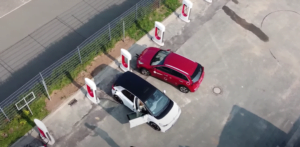
Saskatchewan to Tax Electric Vehicle Owners $150 Per Year

Despite the fact that governments around the world are attempting to incentivize sales of electric cars, in order to spur on the mainstream adoption of non-gas vehicles, one Canadian province has elected to increase a tax on the zero-emission technology.
According to a report from CBC, Saskatchewan government officials have voted to create a $150 CAD ($119 USD) tax for owners of electric vehicles (EVs) in the province (via @TeslaOwnersSK).
The press release says, “[The tax hike] will include an annual $150 tax for passenger electric vehicles.” Continuing, the release includes that the number of EVs in Saskatchewan is “relatively low,” but those driving EVs are “not contributing to highway maintenance through the provincial Fuel Tax.”
@SKGov will be charging SK EV owners an unnecessary annual tax $150.00, a first in Canada. The majority of people in SK approve of the federal EV incentive, yet our provincial gov does the exact opposite. Want to cover road costs? Increase gas prices, don't penalize EVs.
— Tesla Saskatchewan (@TeslaOwnersSK) April 6, 2021
While many have proposed alternative measures of paying for roads in the infancy of EV adoption, like increasing gas prices, taxing gas cars extra, or penalizing companies that sell mostly gas vehicles, the move from Saskatchewan comes amidst a growing movement to incentivize EVs across Canada.
The province’s budget is also facing massive debts, which are forecasted to reach $27.8 billion (CAD) by next March – signifying a $4.2 billion increase.
In defense of the budget, and largely blaming the COVID-19 pandemic for such a financially surprising year, Finance Minister Donna Harpauer said the pandemic was “the biggest shock to the Saskatchewan, Canadian, and world economies since the Second World War.,”
Harpauer continued, “As a result, this year’s deficit will be larger and it will take longer to return to balance than we had anticipated. But we are going to make the investments needed now to protect Saskatchewan people through the end of the pandemic and to drive a strong economic recovery as we emerge.”


They would raise more money increasing gas taxes by a few cents and discouraging the burning of fossil fuels.
Tesla vehicles contribute to highways by not wrecking them. Pickups and semis that make potholes by spinning their wheels: cause pileups by breaking axels in potholes are the ones who should be billed for damages.